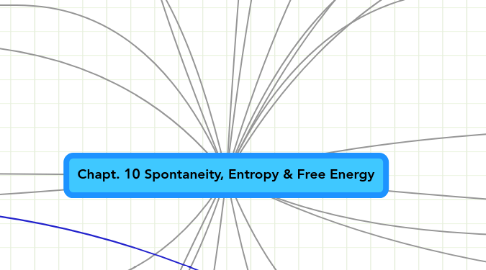Chapt. 10 Spontaneity, Entropy & Free Energy
par Terrence Oas


1. Spontaneous Processes
2. Entropy Changes in Chemical Reactions
2.1. dSsurr: determined primarily by heat flow dSsys: determined by differences in # of positional randomness of products & reactants
3. Free Energy and Chemical Reactions
3.1. Three Ways to Compute DGrxn
3.1.1. From dHo & dSo
3.1.2. Hess' Law
3.1.3. From dGform
